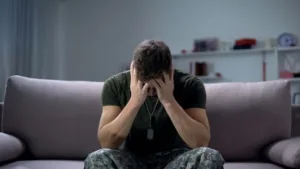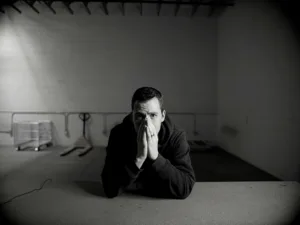Ever heard the term, “The art of the apology?” There’s a lot of truth in this term because truly apologizing to someone you’ve offended, especially your partner, takes practice. It’s a craft, much like any kind of art or sport. Read more to learn the art of how to apologize.
How are you at apologizing? What score, from 1 to 10, with 10 being the best, would you give yourself? You might think you’re great at apologizing. But I’ve got news for you. You may not be as good as you think.
A proper apology goes way beyond the typical, “I’m sorry” muttered under your breath while looking down at the floor. It takes more than looking the person you’ve offended in the eye while saying it, too, though this does help. And don’t even think about following up “I’m sorry” with the word “but…” and then giving an excuse. And lastly, don’t demand an apology in return after you’ve apologized.
If you’ve ever caught yourself doing any of these things, we can help. You can learn the steps to a good apology.
Learning to apologize the proper way will help you repair the damage you’ve done to your relationship. It doesn’t mean what you did was okay, but it does offer you the chance to acknowledge that what you did was wrong and that you’ll make an effort not to do it again.
If you want to learn how to apologize the proper way, let’s start with why men, in particular, have a difficult time apologizing.
We have a hard time being vulnerable
Being vulnerable is hard. It means we have to let our guard down, connect with our feelings and then express these emotions, and admit that we are wrong. If you’ve read my blog post on The Man Box, you know that sometimes this is easier said than done. As men, our go-to response is to shift the blame and make excuses because, as Brene Brown says in her popular TED Talk, “Blame is simply the discharging of discomfort and pain.” Holding ourselves accountable is a vulnerable process because it exposes our flaws and we feel like it shows weakness. But in fact, holding ourselves accountable is an act of strength because it’s more difficult to do. Being defensive because we feel like we’re being attacked is our shield to protect ourselves from being vulnerable. Apologizing and being vulnerable can be challenging, but also an act of bravery and healthy risk-taking.
So, now that we know why we act the way we do when it’s time to apologize, let’s talk about how to break this cycle.
- Ask for permission
It’s never good to assume that an apology will automatically make everything better. Because sometimes it won’t. Many guys have an urge to “fix it” as soon as possible. Because the apology process involves both you and the person you’ve offended, ask them for permission to do so before you start. Doing this will give them the choice to decide whether or not they are ready to talk to you. Sometimes, the offended person needs time to cool off. This is your chance to see if they have had a chance to do this, or if they need more time.
- Acknowledge they are hurt
Admit you’re wrong, Clearly and succinctly state what you have done to hurt the person. Let the person you’ve offended know that you value their feelings. Refrain from saying, “If I hurt you, I’m sorry” because that just means you’re admitting that you don’t understand. Of course, understanding that you’ve hurt them takes empathy. To truly empathize with someone you’ve hurt, you must be able to explain how exactly you hurt them.
- Listen
That part about empathy, about explaining how you understand what you did could hurt them? This requires listening. I mean, really listen. Don’t think about snappy comebacks or excuses. Just listen to what the other person is saying. Don’t interrupt. Just listen. Nod your head and acknowledge you understand what they are saying. This is important because it makes the offended person feel like they are being heard. When the person has finished speaking use active listening to show you understand what they have communicated.
- Plan to Repair
Sincerely apologizing means you need to go beyond just using words. If you can, show how sorry you are by making amends and expressing remorse. You must clearly state what you plan to do to repair the rupture in the relationship. If you broke something, fix it or buy a new one. If you have said something hurtful out of anger, create a plan to handle your anger in a healthy way going forward. If you did something that broke trust, offer ways to rebuild that trust. If possible, it’s important to ask the person you have offended how you can repair the hurt.
- Reaffirm boundaries
Establishing boundaries in relationships is healthy because it establishes a set of rules by which each person can abide. If you’ve done something that crosses that boundary, then your partner has a right to be angry or hurt because the established trust has been broken. Either reaffirm your commitment to the boundaries you’ve both set in your relationship or, if you feel like they may not be working, talk about altering them so there is no resentment or no repeat incidents in the future.
- Forgive yourself
Apologies are often emotional and they can take a toll, not just on the offended person, but the person who was wrong in the first place. The person who was hurt needs to be able to heal, but so does the person who committed the act. When you’re constantly reminding yourself and your partner of the mistake you’ve made, it serves as a reminder of what happened, which makes it harder to move forward. Healing requires admitting what you’ve done, apologizing for doing it, and taking steps to make sure it doesn’t happen again. Then, it’s time to move on. This doesn’t mean you’re clearing yourself of any wrongdoing. You’ve still caused pain. But don’t let that mistake define you or your relationship If you feel you might be stuck on this step remind yourself; what I did was wrong but it’s not who I am. I am a good person who made a mistake. Let it help you grow as a person and allow your relationship to strengthen as a result.
One more thing to remember. Just because you’re apologizing for something, doesn’t mean you’re accepting blame for the entire situation. Arguments evolve because many times, both people are saying or doing things out of anger, just to hurt each other. Apologize for what you’ve done, even if it’s just a small part of the overall conflict. Apologizing first doesn’t mean you’re more at fault. It simply provides an opening to resolve the situation. Accept responsibility for what you did only, not for what your partner may have done. It’s up to them to admit their faults. And never apologize just to get the other person to do so. That only creates resentment, making it harder to move on. And if you are still struggling to work through apologizing with your partner, we have a few couples therapists to help you both find the words.














